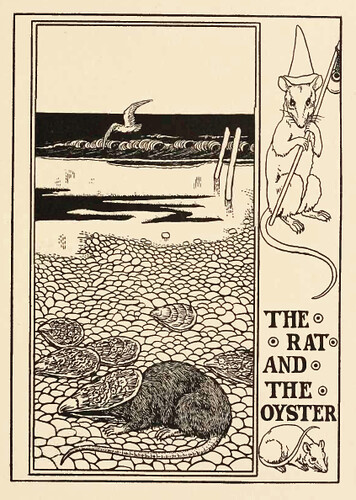HODIE: ante diem tertium Nonas Martias.
GOOGLE BOOKS: Today's Google Books are Bauhuis' Epigrammata and von Böcken's Epigrammata Miscellanea.
MYTHS & LEGENDS: The art image for today's legend shows Eurydice; you can also see the legends for the current week listed together.

TODAY'S DISTICHS & EMBLEMS: All the distichs come with vocabulary lists!
RHYMING DISTICHS: The two new Rhyming Distichs are Non capit optatum, Non capit optatum munus, qui non dat amatum; / Ni quod amas dederis, optata non potieris; and Ut moveant risum, Ut moveant risum multis est utile visum, / Sed risu multi meruerunt nomina stulti.
CATO'S DISTICHS: The two new Cato Distichs are Quod sequitur specta, Quod sequitur specta, quodque imminet ante videto, / Illum imitare deum, partem qui spectat utramque; and Rem, tibi quam nosces, Rem, tibi quam nosces aptam, dimittere noli: / Fronte capillata, post est Occasio calva.
MARTIAL'S DISTICHS: The two new Martial Distichs are Litigat et podagra, Litigat et podagra Diodorus, Flacce, laborat; / Sed nil patrono porrigit: haec cheragra est; and Miraris, quotiens, Miraris, quotiens gemmantis explicat alas, / et potes hunc saevo tradere, dure, coco?
OWEN'S DISTICHS: The two new Owen epigrams, with Harvey's English versions, are Homerus, Mentiri caecum nemo miratur Homerum: / Auritus testis, non oculatus, erat; and Ad Quendam Divitem, Magnus amor tuus est, si multum hoc tempore dones; / Si multum credas, est tua magna fides.
ROLLENHAGEN'S EMBLEMS: The new emblem is Coniunctis Votis, Coniunctis votis, coniuncto pectore quicquid / Postulat, hoc Christi grex super orbe feret.
CAMERARIUS'S EMBLEMS: The two new emblems are Ne Rumperer, Consilio moderato animos frenato furentes, / Ut rigidas quercus vimina lenta solent; and Nec Meta, Nec Onus, Sternit humi, immensum quod pondus iterque camelum; / Sternitur haud fortis laudis amore labor.

TODAY'S MOTTOES & PROVERBS:
3-WORD MOTTOES: Today's 3-word motto is Diligite inimicos vestros (English: Love your enemies).
3-WORD PROVERBS: Today's 3-word proverb is Omnia vincit veritas (English: Truth conquers all).
RHYMING PROVERBS: Today's proverb with rhyme is: Parvus pendetur fur, magnus abire videtur (English: The petty thief is hanged, while the big thief gets off scot-free).
VULGATE VERSES: Today's verse is Debet in spe, qui arat, arare (I Cor. 9:10). For a translation, check out the polyglot Bible, in English, Hebrew, Latin and Greek, at the Sacred Texts Archive online.
ELIZABETHAN PROVERBS: Here is today's proverb commentary, this time by Taverner: Piscator ictus sapiet: The fisher striken wil be wise. A certaine fisherman, when he hadde brawten up his net, and began now to take in his handes the fishes which he had caught, chaunced to take up also a Scorpion, whiche forthwith strake him. Wel quoth he, now that I am striken, I wil beware. The English Proverbe is in this fashion pronounced, The brent childe fyer dredeth.
TODAY'S FABLES & STORIES:
ANECDOTE OF THE DAY: Today's anecdote is Euripides, an anecdote about a defiant playwright!
FABULAE FACILES WIDGET: The fable from the Fabulae Faciles widget is Milvus Aegrotans, a story about a bird who repents on his death-bed (this fable has a vocabulary list).
MILLE FABULAE: The "chunk" of Mille Fabulae et Una today is Fable 531, Perdix, Gallus, et Venator, through Fable 540, Luscinia et Hirundo, including Luscinia et Accipiter, a story about a nightingale and a hawk who, unfortunately for the nightingale, wants food rather than entertainment.
AESOP IN ENGLISH VERSE: Today's fable from the English verse widget is Mice in Council, the famous story of belling the cat.
MILLE FABULAE WIDGET: The fable from the Mille Fabulae et Una widget is Ostreum et Mus, a fable in which a mouse plays a high price for his gourmandizing: Mus, penus regnator et mensae herilis arrosor, ostrea vidit, labris summis hiulca. Quibus teneram barbam suam apponens, mus falsa ossa momordit. Ast tacta, repente domum clauserunt et furem tenuerunt, carcere taetro deprensum, qui semet dederat in tumulum obscurum.
